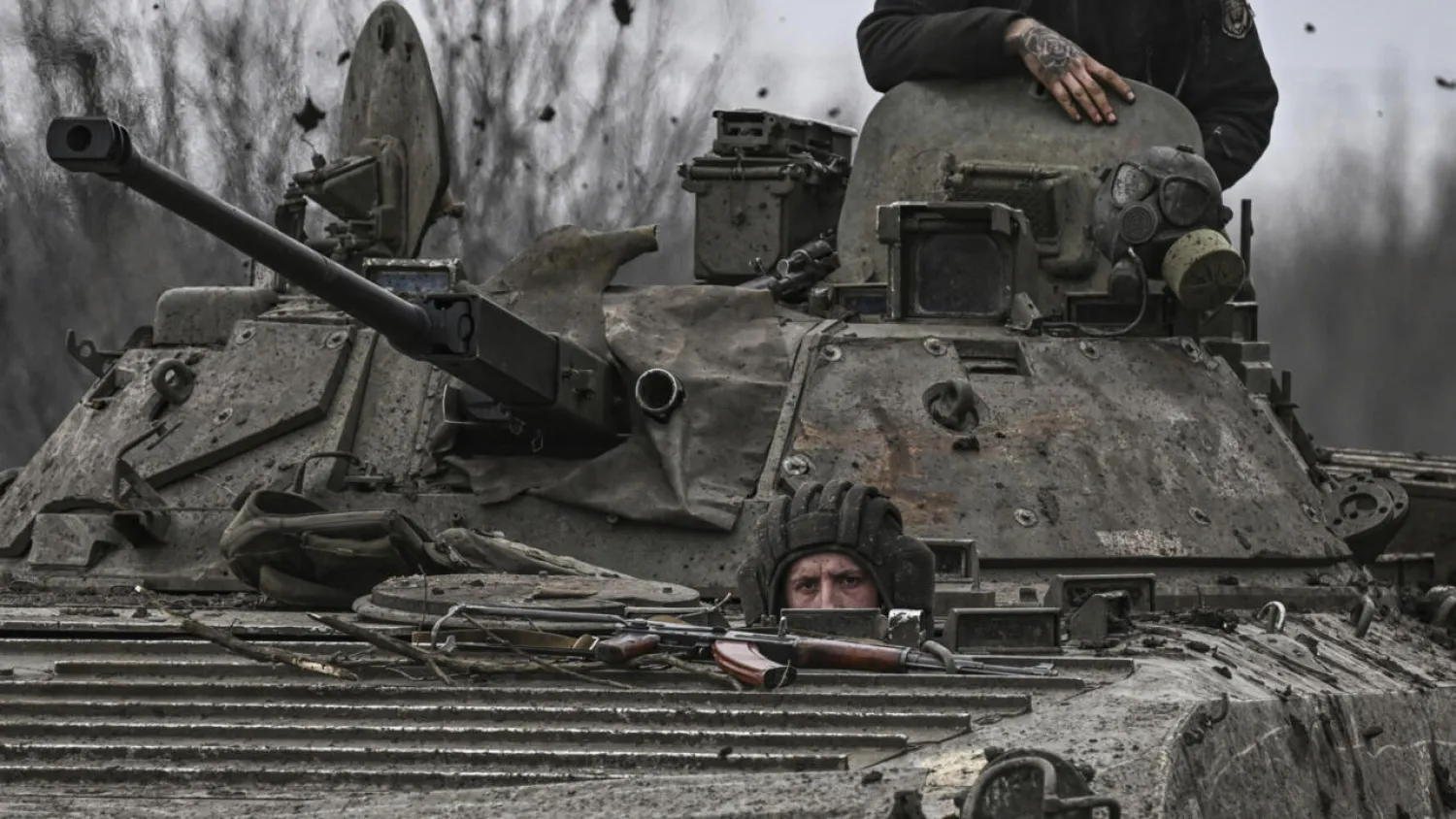The Ukrainian military was preparing Sunday for an upcoming counteroffensive, with a top commander saying his forces' ongoing defense of Bakhmut in the face of fierce and sustained Russian attacks was necessary to "buy time" for that push.
The remarks came as British intelligence said the frontline had shifted in the fight for Bakhmut -- the longest and bloodiest battle of Moscow's year-long invasion -- but that any further Russian advance in the devastated town would be "highly challenging".
Some military experts have questioned the sense of continuing to hold the city, but the commander of Ukraine's ground forces, Oleksandr Syrsky, said that it helped win time in preparation for the coming counteroffensive, said AFP.
"The real heroes now are the defenders who are holding the eastern front on their shoulders, and inflicting the heaviest possible losses, sparing neither themselves nor the enemy," Syrsky was quoted as saying in a statement on Saturday.
"It is necessary to buy time to build reserves and launch a counteroffensive, which is not far off."
In a video released on Saturday, Yevgeny Prigozhin, chief of Russian mercenary group Wagner, said that his forces were close to the administrative center of the city.
Standing on the rooftop of a high-rise building in what is said to be Bakhmut, Prigozhin is seen pointing towards a building in the distance.
"This is the building of the town administration, this is the center of the town," he said, clad in full military gear.
"It is one kilometer and two hundred meters away."
Speaking as artillery boomed in the background, Prigozhin said the most important thing now was to receive more ammunition from the army and "move forward".
Wagner has been spearheading offensives against cities in eastern Ukraine including Bakhmut. Both sides have suffered heavy losses.
The Ukrainian defense ministry on Saturday reported that its forces had repelled "more than 100 enemy attacks" over the last day along the eastern front.
'A killing zone'
In an interview with the French newspaper Journal du Dimanche, Ukrainian Deputy Prime Minister Olga Stefanishyna underscored the human cost of Russia's assault on Bakhmut.
"Thousands of Russian soldiers died at a considerable rate in this battle," she said. "The human mass of its infantry is a formidable weapon, it seems inexhaustible in volume and in time."
But even if it did capture the "small town", she added, "it will not impact the strategic corridors we still control in the region".
British military intelligence said that the Bakhmutka River in the center of the city now marked the front line.
"Ukrainian forces hold the west of the town and have demolished key bridges over the river, which runs north-south through a strip of open ground 200 meters-800 meters wide," the British defense ministry said.
"This area has become a killing zone, likely making it highly challenging for Wagner forces attempting to continue their frontal assault westwards."
Wagner chief Prigozhin, an ally of President Vladimir Putin, has been entangled in a power struggle with the defense ministry.
He has several times claimed battlefield victories ahead of Russia's army, criticized the country's top brass and accused the military of not sharing ammunition with Wagner forces.
On Saturday he said he was ready to ask Russia's top commanders for forgiveness but at the same time appeared to mock Russian Defence Minister Sergei Shoigu and Chief of the General Staff Valery Gerasimov.
He said they were "outstanding military commanders" and added that Russia's greatest military leaders including Georgy Zhukov and Alexander Suvorov "could have learnt" from them.
"I absolutely -- totally -- support all their initiatives," Prigozhin added.
Shelling of Kherson
Since Russia's retreat from the city of Kherson late last year, it has been regularly pounded by Moscow's troops.
The Russian army has kept shelling the southern city, killing three people and wounding another two, Ukrainian officials said Saturday.
"Russian terrorists are shelling Kherson again," said Andriy Yermak, the head of Ukraine's presidential office, posting a picture of firefighters next to a charred car.
Galyna Kolisnyk, 53, said the Russians struck when she was in a store.
"When we entered, literally five minutes later this tragedy happened," she told AFP.
"Explosions began, our car got hit," she said. "This is horrible."
Kherson is the capital of one of the four regions -- along with Donetsk, Lugansk and Zaporizhzhia -- that Russia claims to have annexed but does not fully control.
Donetsk's separatist mayor Alexei Kulemzin said Saturday that Ukrainian shelling had killed two people including a young boy.









